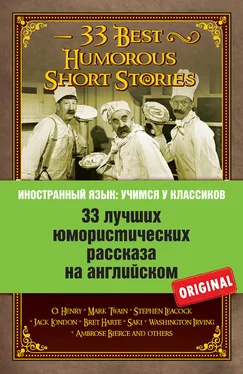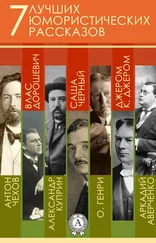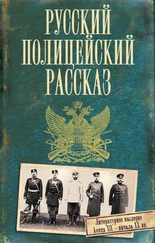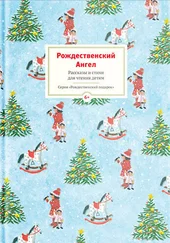His passion for outdoor sports endeared him to his tenants. A keen sportsman, he excelled in fox-hunting, dog-hunting, pig-killing, bat-catching and the pastimes of his class.
In this latter respect Lord Ronald took after his father. From the start the lad had shown the greatest promise. At Eton he had made a splendid showing at battledore and shuttlecock, and at Cambridge had been first in his class at needlework. Already his name was whispered in connection with the All-England ping-pong championship, a triumph which would undoubtedly carry with it a seat in Parliament.
Thus was Gertrude the Governess installed at Nosham Taws.
The days and the weeks sped past.
The simple charm of the beautiful orphan girl attracted all hearts. Her two little pupils became her slaves. ‘Me loves oo,’ the little Rasehellfrida would say, leaning her golden head in Gertrude’s lap. Even the servants loved her. The head gardener would bring a bouquet of beautiful roses to her room before she was up, the second gardener a bunch of early cauliflowers, the third a spray of late asparagus, and even the tenth and eleventh a sprig of mangel-wurzel of an armful of hay. Her room was full of gardeners all the time, while at evening the aged butler, touched at the friendless girl’s loneliness, would tap softly at her door to bring her a rye whiskey and seltzer or a box of Pittsburg Stogies. Even the dumb creatures seemed to admire her in their own dumb way. The dumb rooks settled on her shoulder and every dumb dog around the place followed her.
And Ronald! ah, Ronald! Yes, indeed! They had met. They had spoken.
‘What a dull morning,’ Gertrude had said. ‘ Quelle triste matin! Was fur ein allerverdamnter Tag!’
‘Beastly,’ Ronald had answered.
‘Beastly!!’ The word rang in Gertrude’s ears all day.
After that they were constantly together. They played tennis and ping-pong in the day, and in the evening, in accordance with the stiff routine of the place, they sat down with the Earl and Countess to twenty-five-cent poker, and later still they sat together on the verandah and watched the moon sweeping in great circles around the horizon.
It was not long before Gertrude realised that Lord Ronald felt towards her a warmer feeling than that of mere ping-pong. At times in her presence he would fall, especially after dinner, into a fit of profound subtraction.
Once at night, when Gertrude withdrew to her chamber and before seeking her pillow, prepared to retire as a preliminary to disrobing – in other words, before going to bed, she flung wide the casement (opened the window) and perceived (saw) the face of Lord Ronald. He was sitting on a thorn bush beneath her, and his upturned face wore an expression of agonised pallor.
Meanwhile the days passed. Life at the Taws moved in the ordinary routine of a great English household. At 7 a gong sounded for rising, at 8 a horn blew for breakfast, at 8.30 a whistle sounded for prayers, at 1 a flag was run up at half-mast for lunch, at 4 a gun was fired for afternoon tea, at 9 a first bell sounded for dressing, at 9.15 a second bell for going on dressing, while at 9.30 a rocket was sent up to indicate that dinner was ready. At midnight dinner was over, and at 1 a.m. the tolling of a bell summoned the domestics to evening prayers.
Meanwhile the month allotted by the Earl to Lord Ronald was passing away. It was already July 15, then within a day or two it was July 17, and, almost immediately afterwards, July 18.
At times the Earl, in passing Ronald in the hall, would say sternly, ‘Remember, boy, your consent, or I disinherit you.’
And what were the Earl’s thoughts of Gertrude? Here was the one drop of bitterness in the girl’s cup of happiness. For some reason that she could not divine the Earl showed signs of marked antipathy.
Once as she passed the door of the library he threw a bootjack at her. On another occasion at lunch alone with her he struck her savagely across the face with a sausage.
It was her duty to translate to the Earl his Russian correspondence. She sought in it in vain for the mystery. One day a Russian telegram was handed to the Earl. Gertrude translated it to him aloud.
‘Tutchemoff went to the woman. She is dead.’
On hearing this the Earl became livid with fury, in fact this was the day that he struck her with the sausage.
Then one day while the Earl was absent on a bat hunt, Gertrude, who was turning over his correspondence, with that sweet feminine instinct of interest that rose superior to ill-treatment, suddenly found the key to the mystery.
Lord Nosh was not the rightful owner of the Taws. His distant cousin of the older line, the true heir, had died in a Russian prison to which the machinations of the Earl, while Ambassador at Tschminsk, had consigned him. The daughter of this cousin was the true owner of Nosham Taws.
The family story, save only that the documents before her withheld the name of the rightful heir, lay bare to Gertrude’s eye.
Strange is the heart of woman. Did Gertrude turn from the Earl with spurning? No. Her own sad fate had taught her sympathy.
Yet still the mystery remained! Why did the Earl start perceptibly each time that he looked into her face? Sometimes he started as much as four centimetres, so that one could distinctly see him do it. On such occasions he would hastily drain a dipper of rum and vichy water and become again the correct English gentleman.
The denouement came swiftly. Gertrude never forgot it.
It was the night of the great ball at Nosham Taws. The whole neighbourhood was invited. How Gertrude’s heart had beat with anticipation, and with what trepidation she had overhauled her scant wardrobe in order to appear not unworthy in Lord Ronald’s eyes. Her resources were poor indeed, yet the inborn genius for dress that she inherited from her French mother stood her in good stead. She twined a single rose in her hair and contrived herself a dress out of a few old newspapers and the inside of an umbrella that would have graced a court. Round her waist she bound a single braid of bagstring, while a piece of old lace that had been her mother’s was suspended to her ear by a thread.
Gertrude was the cynosure of all eyes. Floating to the strains of the music she presented a picture of bright girlish innocence that no one could see undisenraptured.
The ball was at its height. It was away up!
Ronald stood with Gertrude in the shrubbery. They looked into one another’s eyes.
‘Gertrude,’ he said, ‘I love you.’
Simple words, and yet they thrilled every fibre in the girl’s costume.
‘Ronald!’ she said, and cast herself about his neck.
At this moment the Earl appeared standing beside them in the moonlight. His stern face was distorted with indignation.
‘So!’ he said, turning to Ronald, ‘it appears that you have chosen!’
‘I have,’ said Ronald with hauteur.
‘You prefer to marry this penniless girl rather than the heiress I have selected for you.’
Gertrude looked from father to son in amazement.
‘Yes,’ said Ronald.
‘Be it so,’ said the Earl, draining a dipper of gin which he carried, and resuming his calm. ‘Then I disinherit you. Leave this place, and never return to it.’
‘Come, Gertrude,’ said Ronald tenderly, ‘let us flee together.’
Gertrude stood before them. The rose had fallen from her head. The lace had fallen from her ear and the bagstring had come undone from her waist. Her newspapers were crumpled beyond recognition. But dishevelled and illegible as she was, she was still mistress of herself.
‘Never,’ she said firmly. ‘Ronald, you shall never make this sacrifice for me.’ Then to the Earl, in tones of ice, ‘There is a pride, sir, as great even as yours. The daughter of Metschnikoff McFiggin need crave a boon from no one.’
Читать дальше
Конец ознакомительного отрывка
Купить книгу












